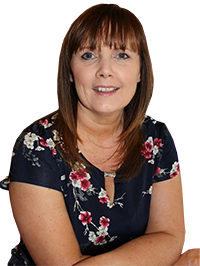Listen: That means keeping your mouth closed and your ears open.
This is crucial in the first few minutes of any sales conversation.
Remember:
- It’s not about you.
- It’s not about your products.
- It’s not about your services.
- No scripted sales pitches either please!
Obviously, you will want to introduce yourself, and tell your prospect your name and the purpose of your visit (or phone call), but what you don’t want to do is ramble on about your product or service. Its way too early for that, at this point in the meeting or conversation, what could you possibly talk about?
You have no idea if what you’re offering is of any use or value to your prospect.
Sell with questions, not answers.
Forget about trying to “sell” your product or service and focus instead on why your prospect wants to buy. To do this, you need to be interested in your prospects business; you need to ask questions (lots and lots of them). Take some notes and paraphrase what you think you have heard, a fantastic skill to use.
Be curious
- Focus your energy on learning about your client. Find out what they really want. What is frustrating them, what do they need to improve, what do they like /dislike?
- Ask questions that will provide you with information about what your prospect really needs.
- Try and put yourself in their shoes, and only recommend something that you know will help them. Then you will start the process of becoming someone they can trust.
- Very few people enjoy being sold to, yet people enjoy buying stuff.
- So it makes since to sell the way people want to buy.
Loose the jargon
Talk to your prospect as you would with your friends, family or colleagues. Selling is about having a good conversation, and the outcome is a decision, which can either be, yes, not right now, or no. It makes no sense to complicate the process with jargon.
Respect your client’s time.
Make sure that the timing is right. You want to have a good conversation. If your client is rushed or pre occupied, I would strongly suggest you reschedule. You will not have the full attention you deserve and the client will not be relaxed enough to share the information you need to provide a solution.
Keep it simple
Don’t ramble on and on about things that have no relation to anything your prospect has said. Pick a few things that you believe will help your customer, focus on the benefits and how your product or service will help them. Having listened, you should have a good understanding of your prospect’s needs in relation to your product or service.
Ask and discuss next steps.
Summarize the meeting with an agreement on what you are going to do and what the client needs to do and agree a date and a time for your next meeting. This is a really good technique to use with clients. The meeting or conversation will close with both of you having to do something. This will give you a great indicator on their interest in choosing you and your product or service.
Present with confidence
Your next meeting, is about presenting the solution based on everything the client has shared with you that is important to them. You have invested time understanding their business; you have created a bespoke solution, that reflects their needs, you are only recommending something that will bring value to them, which could save them time, money or effort.
Ask for the business
I know this sounds silly, but in a recent survey 7 out of 10 sales people did not ask for the business.
Sales are about great conversations and decisions. It’s also about building relationships and creating trust.
after all your hard work, you need to know if you are going to work together in the future, so find a closing technique that works for you and ask for the business.
Introduce a 2 step sales process into your business that will improve your sales performance.
Step 1 = fact find ( listening and asking questions )
Step 2 = Presenting your solution, and look for agreement on next steps.
 If you would like to discuss any sales issues in your business, please get in touch:
If you would like to discuss any sales issues in your business, please get in touch:
jo@salesperformance.ie

